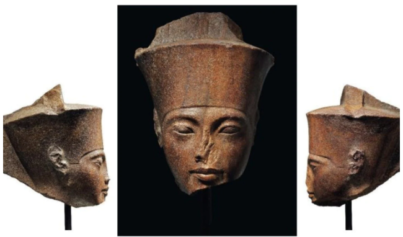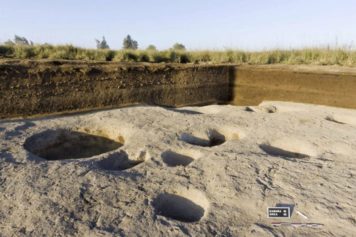The day before the second half of the Egyptian populace is set to vote on a new constitution, violent clashes broke out today in Alexandria between the Islamists and the more secular Egyptians, making it clear that the nation has virtually no chance of finding peace even after the voting is done.
Several dozen people were injured in the fighting, which was spurred by both sides protesting the other side’s position on the new constitution.
Last Saturday, voting was held in 10 of the country’s 27 provinces, including Cairo and Alexandria, the two biggest cities. Turnout was extremely low at 32 percent, casting even more doubt on the legitimacy of a constitutional vote, which opponents of Egyptian President Mohammed Morsi were trying to get him to postpone. According to unofficial results, “Yes” votes in favor of the constitution were slightly ahead at a margin of 56 percent, though rights groups and constitution opponents claimed there were widespread irregularities and people were forced to wait in line for hours in some places—many believe in an effort to discourage their vote.
The clash was focused around Alexandria’s Qaed Ibrahim Mosque, where thousands of people had gathered Friday to “defend [Islamic] scholars and mosques,” and to call for Sharia (Islamic law).
A member of the opposition apparently picked a fight with one of the Islamic protesters, and a battle ensued that lasted for as much as two hours.
Egypt deployed the Central Security Forces (CSF) to fire tear gas into the crowd and keep the two sides away from each other.
According to the Al-Ahram Arabic site, the Islamist protesters were forced to hide inside the nearby Miri Hospital after being chased by their opponents. When the opponents tried to follow them, the CSF kept them away with teargas.
The discord in Egypt highlighted just how much Morsi has bungled the management of Egypt as it tries to institute a constitutional democracy. He has lost the trust and respect of his people and it’s unclear how he will manage to stay in power when all of this conflict is over.
The opposition National Salvation Front, one of the largest groups opposing Morsi, repeated its call today for voters to oppose the document. Nobel laureate Mohamed ElBaradei, one of the group’s leaders, urged Morsi to suspend the referendum and form a new constituent assembly.
“If this constitution passed, there will be no stability,” said Baradei, Egypt’s leading pro-democracy advocate.
If the constitution passes, giving unprecedented authority to the Muslim Brotherhood, an organization that was banned in Egypt just two years ago, a new era of Islamic fundamentalism and adherence to the strict tenets of sharia law will sweep across the nation. That will bring a severe reaction from Morsi’s opponents, liberal and secular groups and the judicial and social elite who have no interest in living in a society where religious law is legal and binding and violators may face serious retribution as infidels.
But if the constitution fails, there will be retaliation from the Brotherhood and the extremely conservative Salafi movement, which will push Morsi to try any means necessary to take control of Egyptian institutions. It was this impulse that started much of the recent discord in the first place, as Morsi immediately followed up his triumphant negotiation of a ceasefire in Palestine between Israel and Hamas by issuing a decree on Nov. 22 that basically rendered the nation’s judiciary irrelevant, putting Morsi above the law and the judges in an effort to insulate the Islamist-influenced body writing the constitution from judicial interference—the judges were expected to force the disbanding of the constitutional assembly, as they had done before.


